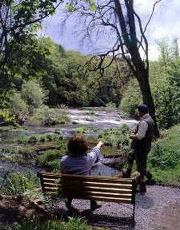|
|
|
| Report For: |
Irfon, River
|
|

Irfon
Where To Stay
Caer Beris Manor
Where To Fish
Caer Beris Manor

|
| Species of Fish: | Salmon, Trout, Grayling, Shad
|
| Season Start Date: |
26/1
(Salmon & Seatrout)
|
| Season End Date: |
25/10
(Salmon & Seatrout)
|
| Angling Weather Call No: |
09003 406 163
|
| Angling Weather Fax No: | 09060 122 413 |
| Angling Weather Web Site: | Click Here |
Water Details:
Height: Very Low
Auto River Call Height Gauge No:
0906 619 7755
Clarity: Very Clear
Temperature: Very Cold
Recent Catches: A Few
Successful Angling Methods:
Prospects & General Comments:
Plastic in Rivers and Seas Friday 5th April, 2019 In 2004, the Wye & Usk Foundation carried out collections on both rivers to establish the source of the litter strewn along the banks after each flood. We discovered that in the upper catchments, a large proportion of it was of agricultural origin (76%), consisting mainly of silage wrap, feed bags and plastic buckets.
Moving downstream, the proportion of domestic litter increased, as would be expected. Our clear-up on the Usk just downstream of Brecon found that the percentage of agricultural litter had dropped to below 50% of the total. Other clean-ups since have shown that by the time the rivers reach the estuary, plastic bottles and bags usually dominate the hauls.
While we acknowledge that this is an issue of national importance, our primary concern back in 2004 was that agricultural litter represented the visible side of the use of rivers as a conduit for all kinds of dangerous waste, including dead animals, sheep dips and other chemicals. More than a decade on, and thanks to some high profile celebrity involvement, there is now huge media coverage and vastly improved public awareness of the problem plastics pose to our planet's aquatic life (both marine and freshwater) and to our own food chain.
Cardiff University, in conjunction with Greenpeace, have recently undertaken studies that found microplastics in water samples from the lower Wye and the Conwy in North Wales. A separate survey, also found microplastics in half the invertebrates sampled in the river Taff.
The hope is that their study will pinpoint the major source of microplastics in rivers, currently believed to be polyester clothing in washing machines. In addition to this, an upper Wye fishery owner showed last week that rivers remain a cheap way of disposing farm plastics. Clearing just 600m of bank, his haul included 37 feed or fertilizer sacks, 7 plastic sheep lick containers and an estimated 1,000+ pieces of black silage wrap. This litter will add to the microplastics found in the surveys and contributes to the huge quantity found in our seas affecting marine wildlife. River litter can account for 85% of what is found on our beaches.
What can be done? More natural fibre clothing would help in one respect. Also, tighter controls on farm pollution plus the development of the much talked about "circular economy", which would lead to an end to our throwaway society.
Fiona Nicholls, Greenpeace UK's plastics campaigner, was quoted by the BBC as saying strong legislation was required to protect the environment. Wales has some of the best environmental legislation in the world. Unfortunately, it also has a distinctly third world approach to enforcement. Perhaps a start would be to recognise that part of the problem of river plastic in Wales is that some farmers operate on a business model of low investment and no regulatory interference.
April is the last chance to clear up litter before it is concealed by bankside vegetation or it travels further downstream. We would like to appeal
Litter of agricultural origin made up over three quarters of the total in WUF's upper Wye surveys.
The Foundation has undertaken several large-scale clean ups with partners such as Keep Wales Tidy. This was a farm tip on the banks of the Nant-y-Maes brook on the upper Wye that we removed in 2005.
Please do all you can to keep our rivers clear of plastic and other litter, and tell us about it!
to everyone to join all the other volunteers this spring, helping to make a difference by reducing the amount of plastic in the rivers. If you do, we would be very interested to hear about it and add details of what you have collected to our records.
All the best from WUF.
Details of the Foundation's current projects can be found here.
Click here for anglers' reports and monthly fishing reports.
The latest news from the Foundation can be found here.
EA Emergency Hotline: 0800 80 70 60 NRW Emergency Hotline: 0300 065 3000
Dwr Cymru/Welsh Water Emergency Sewage Line: 0800 085 3968
Rainfall at Llanstephan 2019 to date: 8" ( '18: 38" '17: 34" '16: 35" '15: 28", '14: 54", '13: 39", '12: 47", '11: 29")
Bookings and availability Tel: 01874 712 074
This email was sent by The Wye & Usk Foundation.
Click here to unsubscribe or manage your ubscription
Report Supplied By:
Peter Smith
http://www.caerberis.co.uk/
Caerberismanor@btinternet.com
|
|
|
|





